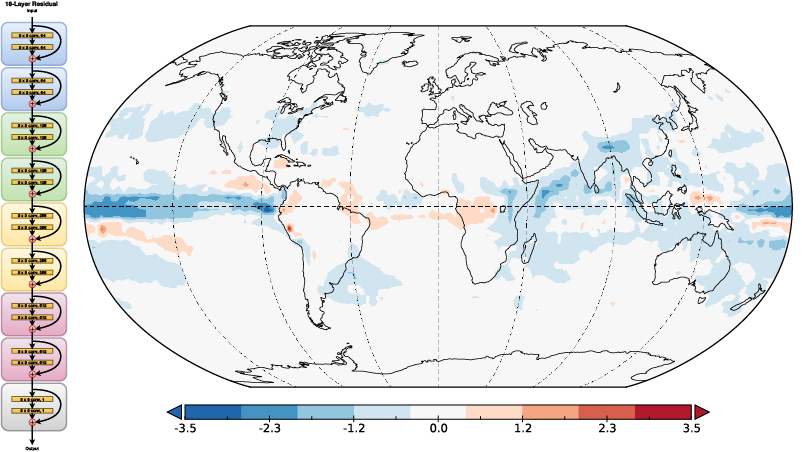Climate models are the gold standard for conducting studies of what the climate might look like in the future. But they are very computationally expensive – running a single simulation out to the end of the century can take weeks on a supercomputer. Is there a faster way to get information that might not be perfect but is good enough?
Working with colleagues from Western Washington University and Pacific Northwest National Laboratory, Professor Ben Kravitz of Indiana University trained a deep learning algorithm on climate model output to create a surrogate – a model of precipitation over the 21st century that roughly matches the output of the climate model but can run in seconds. Our model outperformed several metrics of skill for forecasts out to 120 months. In doing this, not only did we successfully build a surrogate, but we also learned more about how well deep learning works in the geosciences.


